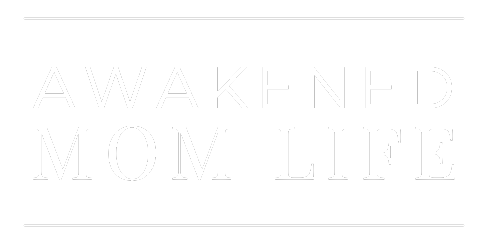Childhood trauma consists of overwhelming stress or harm that occurs during childhood. Trauma can take many forms, including physical, emotional, or sexual abuse, neglect, exposure to violence, and other forms of distress. Trauma can be a one-time event, such as a natural disaster or a car accident, or ongoing, such as ongoing abuse or neglect.
Trauma can be experienced differently by different children, and not all children who experience trauma will develop trauma-related health symptoms or mental health problems. This is part of why siblings raised in the same household grow up and feel differently about how they were raised.

Unfortunately, for some, trauma can have significant and lasting effects on your emotional, cognitive, and social development. And it can impact your ability to form healthy relationships, regulate emotions, and learn and thrive in school and other settings.
It’s important to note that childhood trauma can impact individuals of any background or culture and can have long-term consequences that persist into adulthood. BUT healing is possible. Do you think you think it’s possible you have a narcissistic mother? This can radically impact you and create severe trauma.
What are the effects of childhood trauma on brain development?
Childhood trauma can have significant and lasting effects on brain development. Trauma can cause changes in the brain’s structure and function, impacting emotional, cognitive, and social functioning.
Here are a few examples of the effects of childhood trauma on brain development:
- The amygdala: The amygdala is part of the brain responsible for processing emotions, especially fear and anxiety. Childhood trauma can lead to amygdala changes, making it more reactive to stress and less able to regulate emotional responses.
- The hippocampus: The hippocampus is responsible for memory processing, including forming new memories and retrieving old ones. Childhood trauma can cause changes in the size and function of the hippocampus, which can impact memory formation and retrieval.
- The prefrontal cortex: The prefrontal cortex is part of the brain responsible for executive functioning, including decision-making, impulse control, and emotional regulation. Childhood trauma can impact the development of the prefrontal cortex, leading to difficulties with decision-making, impulse control, and emotional regulation.
- The HPA axis: The hypothalamic-pituitary-adrenal (HPA) axis is responsible for the body’s stress response. Childhood trauma can lead to changes in the HPA axis that make it more reactive to stress and less able to regulate stress responses.
These changes in brain structure and function can impact a wide range of emotional, cognitive, and social functioning, including memory, learning, emotional regulation, and social relationships. However, it’s important to note that the brain has an incredible capacity for healing and recovery.
With the proper support and interventions, it is possible to promote healing and recovery from childhood trauma
What are the effects of childhood trauma on psychological functioning?
Childhood trauma can have significant and long-lasting effects on psychological functioning. Trauma can affect how a child perceives and interacts with the world and can impact their emotional, cognitive, and social development.
Here are a few examples of the effects of childhood trauma on psychological functioning:
- Emotional regulation: Childhood trauma can cause difficulties with emotional regulation, leading to problems with managing emotions, regulating mood, and coping with stress. Children who experience trauma may be more likely to experience depression, anxiety, and other mental health problems.
- Attachment and relationships: Childhood trauma can impact the development of healthy attachment patterns and the ability to form positive relationships. Children who experience trauma may struggle to form trusting relationships with others and may be more likely to experience problems with social isolation and loneliness.
- Cognitive functioning: Childhood trauma can impact cognitive functioning, including memory, attention, and learning. Children who experience trauma may have difficulty with academic achievement and struggle to focus and retain information.
- Self-esteem and self-concept: Childhood trauma can impact self-esteem and self-concept, leading to feelings of low self-worth, shame, and self-blame. Children who experience trauma may be more likely to experience negative beliefs about themselves and the world around them.
- Behavior and coping: Childhood trauma can impact behavior and coping strategies, leading to problems with substance abuse, self-harm, and other maladaptive coping mechanisms. Children who experience trauma may be more likely to engage in risky or harmful behaviors to cope with the trauma they have experienced.
It’s important to note that the effects of childhood trauma can be complex and manifest differently in different children, depending on the type and severity of the trauma, as well as individual factors such as age, gender, and temperament.
It’s essential to seek professional help if you or someone you know has experienced childhood trauma and is struggling with trauma-related symptoms or mental health problems.
How do I heal from Childhood Trauma?
Recovering from childhood trauma and developmental trauma doesn’t always take forever. It’s about tuning into your body’s pace, as it won’t rush the healing process. This healing unfolds on three levels: physical, biological, and mental.
- Re-connect to your body
- Release the biological imprint of trauma
- Challenge your thought patterns
Each part affects the rest in a tightly interwoven network of influence. Skipping one isn’t an option because they function in harmony. Your body and brain operate as a connected system, so changes in one area create ripples in the others. This makes it crucial to address every component for a full recovery.
I’m in therapy; is that enough to heal from childhood trauma?
The “gold standard” therapy is Cognitive Behavioral therapy (CBT) and while this can be incredibly helpful for the general population, it can actually make things worse for a trauma survivor.
CBT relies on certain assumptions about how the brain processes information and emotions. It assumes that individuals can identify and change their thought patterns and behaviors effectively. However, a brain affected by developmental trauma doesn’t do this.

Trauma-informed therapy is crucial for individuals with developmental trauma because it recognizes trauma’s profound impact on the brain and the body—and it’s still just one piece of the puzzle.
It’s important to remember that healing from childhood trauma is a process, and it can take time and effort. However, with the right support and resources, it is possible to recover from trauma and live a fulfilling and meaningful life.
What are the long-term effects of childhood trauma?
Childhood trauma can have long-lasting effects on an individual’s psychological, emotional, and physical well-being.
Some of the long-term effects of childhood trauma can include:
- Increased risk of mental health disorders: Childhood trauma has been linked to an increased risk of developing mental health disorders, including depression, anxiety, post-traumatic stress disorder (PTSD), and substance abuse disorders.
- Impaired brain development: Childhood trauma can disrupt the normal development of the brain, particularly in regions responsible for emotional regulation, memory, and learning. This can lead to long-term cognitive and emotional difficulties.
- Difficulty forming and maintaining relationships: Childhood trauma can make it difficult for individuals to form and maintain healthy relationships with others. This can be due to trust issues, difficulty with emotional regulation, or other factors.
- Chronic physical health problems: Childhood trauma has been linked to an increased risk of developing chronic health problems, including heart disease, diabetes, and autoimmune disorders.
- Lower life expectancy: Individuals who have experienced childhood trauma may have a lower life expectancy due to the increased risk of chronic health problems and other adverse outcomes.
It’s important to note that not everyone who experiences childhood trauma will develop these long-term effects, and the severity of the trauma can also impact the likelihood and severity of these effects. However, it is crucial for individuals who have experienced childhood trauma to seek professional help to address any symptoms or issues they may be experiencing.
I’ve been on a healing journey for over a decade and I can tell you that change and healing are possible. And you can break free from the cycle of generational trauma so your children can experience better.














